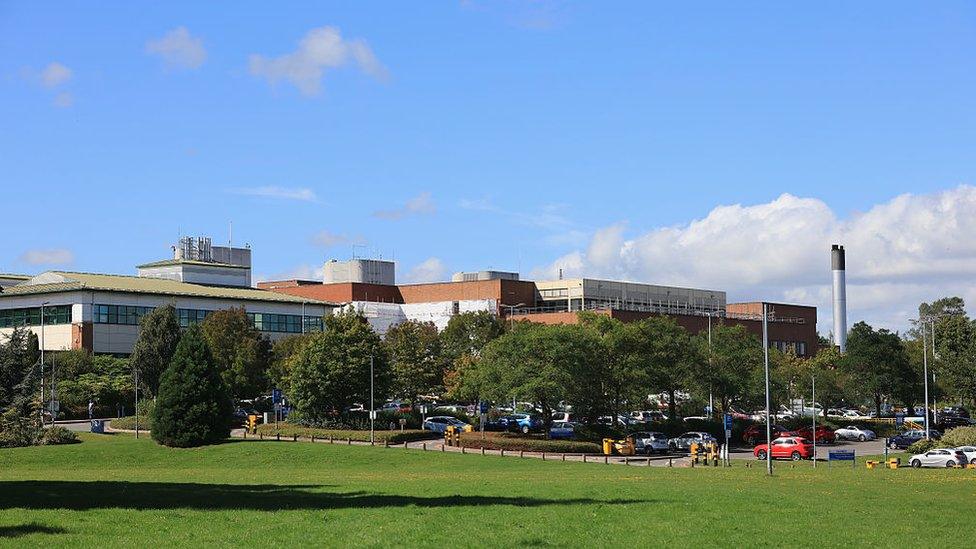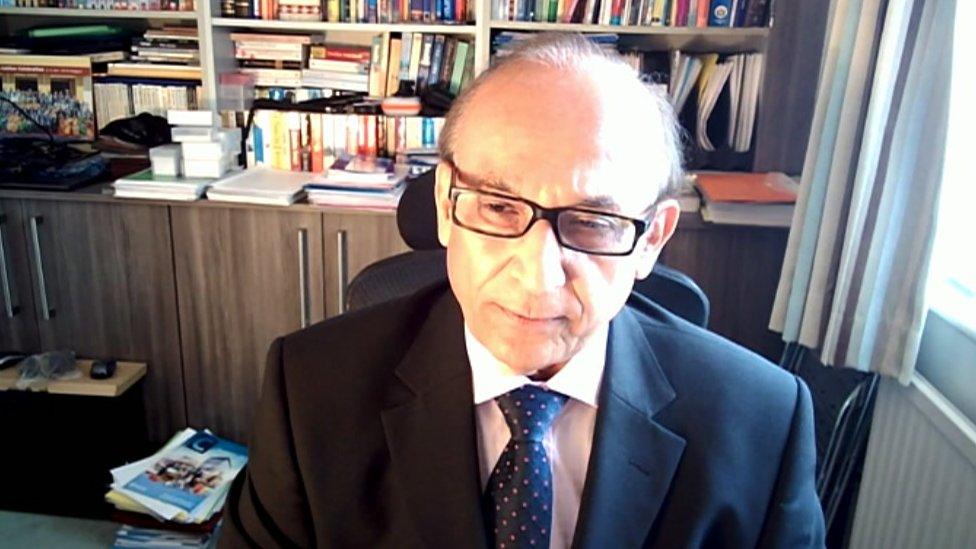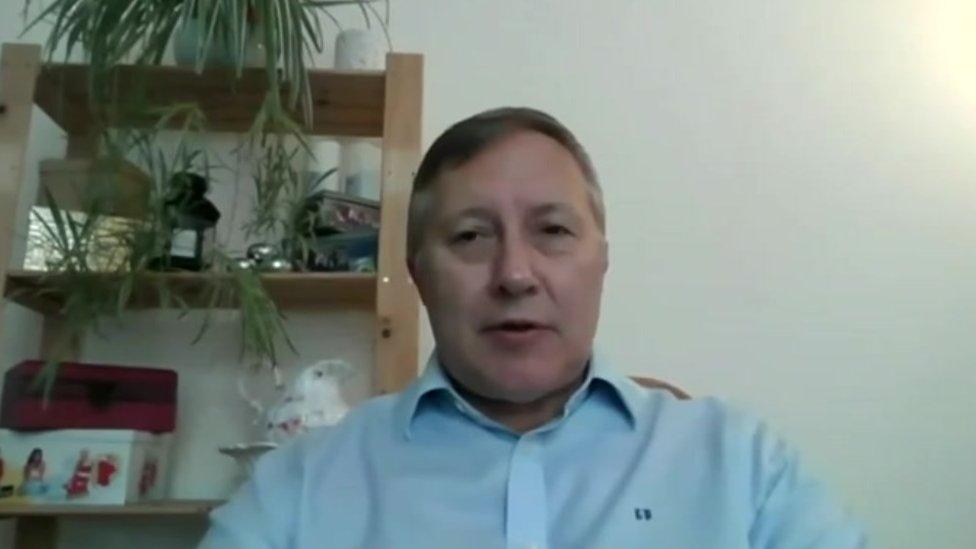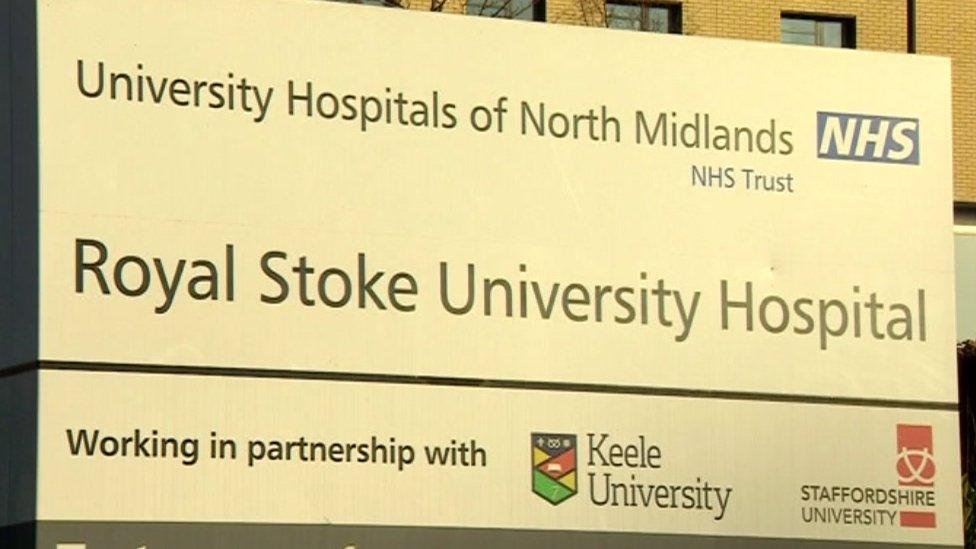Senior doctors allege racist bullying at a Staffordshire NHS trust
- Published

University Hospitals of North Midlands said it has "zero tolerance" of bullying
More than half of medical staff who completed a survey at a hospital trust said they had been bullied at work.
The survey, commissioned by the British Association of Physicians of Indian Origin (BAPIO), was sent to staff at University Hospitals of North Midlands.
It found 63% of respondents had experienced discrimination, bullying and harassment at the NHS trust.
UHNM said it was "disappointed" by the feedback and had commissioned an independent review.
BAPIO commissioned the anonymous survey earlier this year after concerns about the culture at the trust, which runs the Royal Stoke University Hospital, were raised by some of its members.

Dr Ramesh Mehta called for a "culture change" at the trust
"Shocking is to put it very mildly," the organisation's president, Dr Ramesh Mehta, said of the findings.
"This is a national problem but what is happening in Stoke is much worse than we have seen in other hospitals."
The survey was sent to all medical staff at the trust, including some 1,200 junior and senior doctors, and received 348 responses - about 30% of the doctor workforce.
UHNM said this represented a small number of its staff and its own review would take in its entire workforce, which totals more than 12,000.
The majority of respondents were middle aged, male consultants, either from white or Indian backgrounds.
Race, religion and gender were recorded as the main source of bullying.
Dr Mehta said ethnic minority staff were treated "as if they are second class doctors" and cited examples of them being allegedly forced to do extra work and not take annual leave.

Dr Laszlo Papp resigned from UHNM and now works for a hospital in Wales
Dr Laszlo Papp told the BBC how he resigned from the trust after 10 years due to stress.
He said he had a blood pressure crisis and spent five months on stress-related leave after being sworn at and subject to petty investigations.
The trust's board has only recently appointed its first non-white director and Dr Mehta called for a culture change within the trust "starting from the top".
"There has to be culture change, there needs to be understanding that we are all equal," he said.

Just under 350 doctors responded to the survey
The mayor of Stoke-on-Trent, Dr Chandra Kanneganti, is also a GP and echoed Dr Mehta.
"I've been in this city for nearly 15 years," he said. "But I have not seen any director from an ethnic minority background, in spite of 70% of the medical workforce being minorities."

Analysis: Michele Paduano, BBC Midlands Today health correspondent
NHS England has recognised that there has only been limited success in reducing discrimination in recent years and more work needs to be done.
The British Medical Association believes that there is structural racism in the NHS.
This row in Stoke-on-Trent is an extreme example of the frustration faced by ethnic minority doctors.
They represent 70% of doctors in the trust - but have very little say in the management of the services that they provide.

UHNM's medical director, Dr John Oxtoby, said the trust had "a zero tolerance to bullying and harassment".
"We are always keen to hear from all our 12,000 staff about their experience working at our hospitals, fully investigating all concerns which are raised," he said.
He added their independent report, once completed, would be "shared and used to both inform and develop any changes we need to make to improve the working experience for all of our staff".
Dr Mehta said BAPIO had "huge experience" of dealing with similar issues nationally, but its offer to help with the review had been turned down.

BAPIO said discrimination was a "national problem" that was particularly acute in Staffordshire

Follow BBC West Midlands on Facebook, external, Twitter, external and Instagram, external. Send your story ideas to: newsonline.westmidlands@bbc.co.uk, external